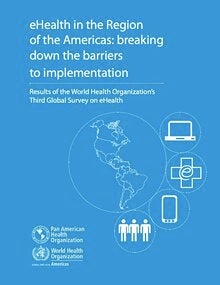In 2005, all WHO Member States committed to working to achieve universal health coverage (UHC) (1), in a collective expression of the belief that all people in need should have access to health services without risk of financial ruin or impoverishment. Working for universal health coverage is a powerful mechanism for achieving improved health and well-being, as well as for promoting human development. This, the Third Global Survey on eHealth, conducted by the WHO Global Observatory for eHealth (GOe), reflects a special perspective: the use of eHealth to support universal health coverage. eHealth – referring to the cost-effective and safe use of information and communication technologies (ICTs) to support health and health-related areas, including health care, health surveillance, health literature and education, and health-related knowledge and research (2) – plays a vital role in the promotion of universal health coverage, including using telehealth or mobile health devices (mHealth) to provide services to remote populations and marginalized communities. eHealth facilitates the training of health personnel through virtual learning; makes education more accessible, especially for those who are isolated; and improves diagnosis and treatment by providing accurate and timely information on patients using digital health records. The strategic use of ICTs improves the operations and financial efficiency of health systems...
|

